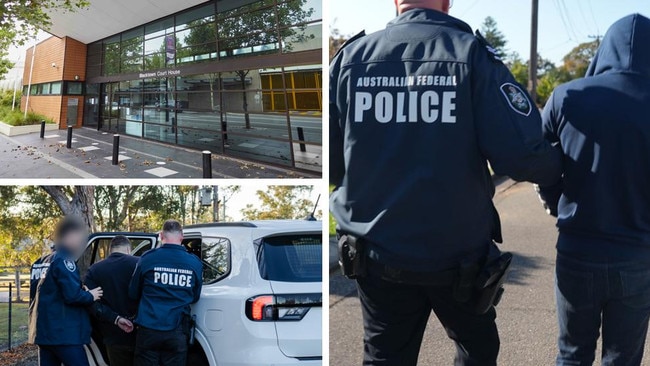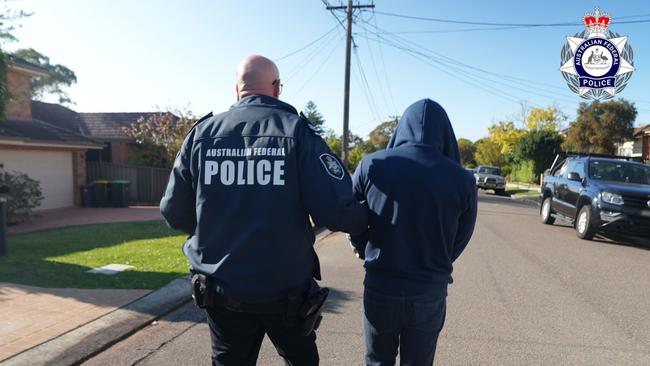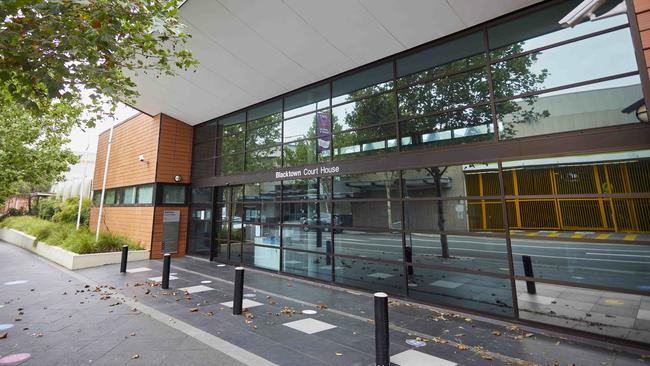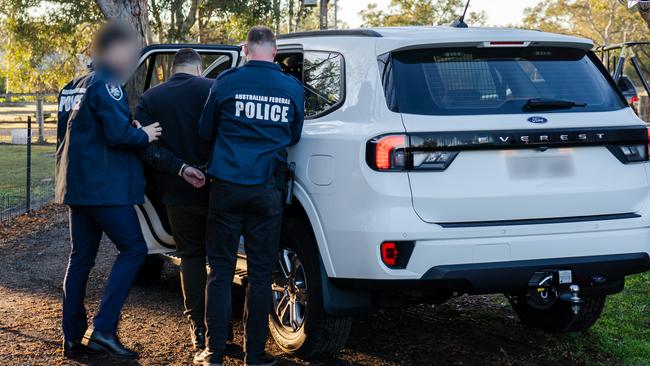Ahmad Darush Malikzada, Hadees Hayunchiyan, Hamza Youssofzay make bail applications after ‘Ghost’ app arrests
Emotions have run high as three men made bids for freedom following the infiltration of an “impenetrable” app, which police say was “built for the criminal underworld”.

Blacktown
Don't miss out on the headlines from Blacktown. Followed categories will be added to My News.
Emotions have run high in court as three men made bids for freedom following the infiltration of an “impenetrable” app, which the Australian Federal Police has described as being “built for the criminal underworld”.
The public gallery was packed in Blacktown Local Court on Wednesday, with distraught family members watching on as Ahmad Darush Malikzada, 27, Hadees Hayunchiyan, 26, and Hamza Youssofzay, 23, appeared via video link to apply for bail.
The trio was among a large number of people arrested and charged during recent raids that followed the AFP infiltrating a communications platform known as “Ghost”, which was allegedly used by underworld figures, in March.
Police will allege “Ghost” was used for several purposes, including drug trafficking, kidnappings and murder plots.
Malikzada, Hayunchiyan and Youssofzay are charged with a combined 22 offences, to which they are yet to enter pleas.

All three men face drug trafficking charges and allegations of committing an offence for the benefit of a criminal organisation.
Malikzada and Youssofzay are further accused of conspiring to enter a home with intent to deprive someone of liberty and possessing a dedicated encrypted criminal communication device, among other offences.
The court heard it was alleged they were involved in a syndicate that operated between Sydney and Inverell, near the Queensland border.
Youssofzay appeared first, with the court told he had been arrested on September 5 after a police search allegedly uncovered cocaine at his family home in western Sydney.
He was released on bail before being arrested again 11 days later and hit with further charges, including allegations surrounding a “Ghost” device.

Lawyer Zemari Khatiz said a $30,000 surety was on offer to secure bail for his client, who had complied with bail conditions before his second arrest.
He said his client’s case was “defendable”, noting out of a 70-page police document outlining the allegations, only eight pages related to Youssofzay.
Magistrate Deborah Maher denied Youssofzay bail on Wednesday, saying the risk of him failing to appear in court was too great, as were concerns about him committing offences.
Several people in the public gallery sobbed and leant on each other for support after the decision was handed down.
Malikzada appeared next, with the court told he was allegedly involved in a conspiracy to perform surveillance for a home invasion.
Lawyer Ihab Jamal told the court his client was “not the one doing the wheeling and dealing” and instead was allegedly a “runner” – the person tasked with moving drugs from one location to another for other people to then deal it.
The court was told Malikzada was allegedly found with two “Ghost” devices on him when he was arrested on September 5.
Mr Jamal said his client lived at home with his parents and his partner, proposing several bail conditions including under house arrest. Malikzada had also already surrendered his passport.
But Ms Maher also denied Malikzada bail, citing the risks he would commit offences, abscond, or interfere with his co-accused or other alleged syndicate members.

The third and final person to appear was Hayunchiyan, who was described as “the person least referred to” in court documents.
The court was told it was alleged Hayunchian had been referred to as “painter” in messages.
But lawyer Eli Mansour said there was no “linking chain” to prove his client was that person.
Mr Mansour said his client’s family was prepared to offer a $5000 surety to secure bail, while his passport could be surrendered.
Ms Maher granted Hayunchiyan bail on conditions that require him to surrender his passport and remain at home unless with his parents.
He was also banned from possessing a smartphone, leaving the state, using any encrypted messaging apps, and contacting any of his co-accused or other witnesses unless through a lawyer.
All three men are due to appear in court again in the Downing Centre on November 13.



